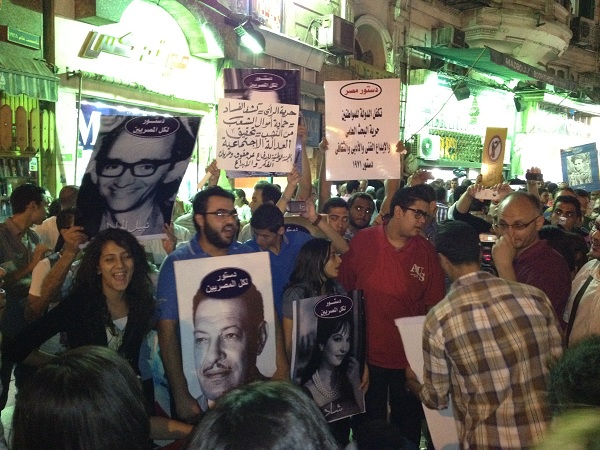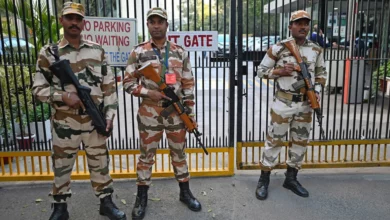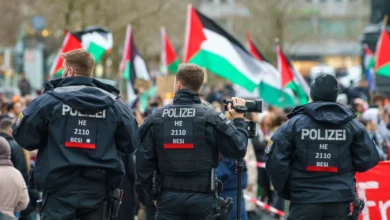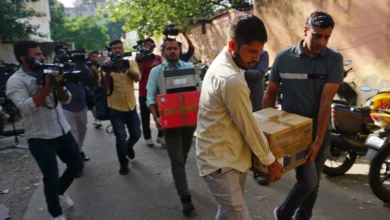
Vague terminology continues to plague articles pertaining to media freedom in the draft constitution, despite praise for some clauses deemed a step toward wider rights.
The four articles — 42, 43, 216 and 217 — fail to detail mechanisms to mitigate violations against the media, which experts say is equally, if not more, vital than enshrining these rights in the constitution.
Many lauded the removal of the punitive Article 12, which allowed for state censorship as well as punishment and imprisonment in cases of libel, defamation and inciting violence or discrimination. In practice, the ambiguity of what qualifies as an offense indirectly granted the president expansive powers to imprison, or at least muzzle, critics.
Despite its removal, observers claim the newly drafted articles continue to grant state access in controlling the press.
According to a Freedom House report published earlier this year, Egypt improved from being “not free” to “partly free.” However, the report added, “By year’s end, there were worrying indications these gains were being reversed.”
Judges have filed 1,164 charges in the courts against journalists and state TV hosts, accusing them of consistently defaming the judiciary. Several media figures have been investigated in these cases, including prominent TV hosts Reem Maged and Hala Sarhan.
The Arab Network for Human Rights Information published a report earlier this month that documents 43 violations of freedom of expression over the past three months.
Violations allegedly committed by the current government, or the Freedom and Justice Party, included censorship, confiscation, physical attacks on journalists and legal cases against newspaper editors.
In times of war
Article 42, previously Article 10, guarantees the “freedom of the press, printing, publication and all media,” while banning censorship except for limited intervention in times of war.
The new article removes an excerpt that previously granted authorities the power to suspend or shut down publications by court order, introduced in ousted President Hosni Mubarak’s notorious 2006 constitutional amendments.
While the removal of the “emergency status” in place since the 1971 Constitution was applauded, limiting media freedoms in times of war is still viewed as problematic and restrictive.
“It is in such times of turmoil and war especially when propaganda is at its peak, that the media should be free,” says Ahmed Ezzat, lawyer and member of the Association for Freedom of Thought and Expression. “We have seen in the past, such as in the 1973 war, that the public was not very well-informed of the state’s victories, losses and intentions.”
Others argue that in failing to define war, the article leaves room for a skewed manipulation of the term for political purposes.
Article 179 of the 1971 Constitution, for example, introduced the idea of a “war on terror,” and thus, in practice, expanded the power of authorities to arbitrarily detain and arrest opposition groups.
Putting rights in practice
Article 43, previously Article 11, vows to open up the space for different media forms to be established, and is meant to uphold their freedom and independence. However, it does not propose a mechanism by which these rights are guaranteed.
“Freedom of publishing and ownership of newspapers of all forms is guaranteed for individuals or entities, merely by notification. The law regulates the establishment of radio and television broadcasting stations and digital media without restricting their freedom and independence,” it says.
In contrast to the previous constitution, media experts praise Article 43 for allowing the publication of newspapers after notifying the appropriate authorities, as opposed to after being granted permission.
While vowing to protect all forms of media in a manner that does not “restrict their freedom and independence,” the article fails to clearly outline a coherent mechanism to ensure these rights are protected.
“Freedoms granted are quite useless in practice if the state does not [create] mechanisms and independent bodies to ensure violations [against the media] do not take place,” says Ezzat.
Ibrahim Nawar, head of Arab Press Freedom Watch, agrees.
“It is quite futile for a state to claim that the right to publish freely is granted, if the state continues to have control over distribution and regulation,” he says.
Criticism also shrouds the inclusion of digital media under the umbrella of state regulation. Perceived as vague, broad and expansive, some say it can apply to various platforms including websites, social media and user-generated content, and newspapers.
Supervisory bodies
Both Articles 216 and 217 relate to the supervision of private and state-owned media outlets by independent regulatory bodies.
Long criticized for being the government’s mouthpiece, activists and experts have called for detangling state-owned media from state control. The new government officials have, however, promised to create independent bodies to monitor state media.
Pertaining to the regulation of private media outlets, Article 216 establishes the National Council for Audio and Visual Media and the National Press Council, which are to collaborate to ensure “the freedom of various forms of media, their development, diversity and plurality.”
The article also attempts to mitigate “monopolization and concentration” in order to protect public interests through media that “reflect professionalism, morals and preservation of the Arabic language and society.”
Similarly, Article 217 stipulates the management of state-owned press and media institutions through the would-be National Press and Media Authority. This body would have the right to control the “assets and investments” of state-owned media, and would ensure their “commitment to professional, managerial, rational and economic performance.”
However, critics are wary of the creation of such a body, saying it could augment state control over media — a task previously undertaken by the Supreme Press Council in the Shura Council. The articles also fail to specify the composition of these regulatory bodies.
“Rather than creating an independent body, the ruling party, in this case the Muslim Brotherhood, has, in essence, centralized media regulation into one body,” says Nawar.
A draft bill submitted to Parliament before it was dissolved in June proposed that the president appoint the head of state-owned media, while collaborating with the People’s Assembly to select half of the members on the media council. These rights were previously relegated to the Shura Council in the 1971 Constitution.
“[The ruling party] will attempt to legitimize this body by including a couple of members from the opposition. But in reality, it will continue to serve their political agenda,” Ezzat says.
The proposed articles do little to stem concerns about politicized state control in state-owned media.
“The state should not be able to monopolize state media, and its role should be limited to providing it with access, facilities and finances, in a manner that is transparent and independent,” Ezzat argues.
Compounding concerns are existing laws that many experts claim undermine any rights gained in the draft constitution, such as the 1996 Press Law, the 1977 Law on Security of National Unity and the Publications Law.
“Rights and freedoms granted in the constitution are pointless if the constitution continues to be secondary to the law,” Nawar says.
This piece was originally published in Egypt Independent's weekly print edition.




